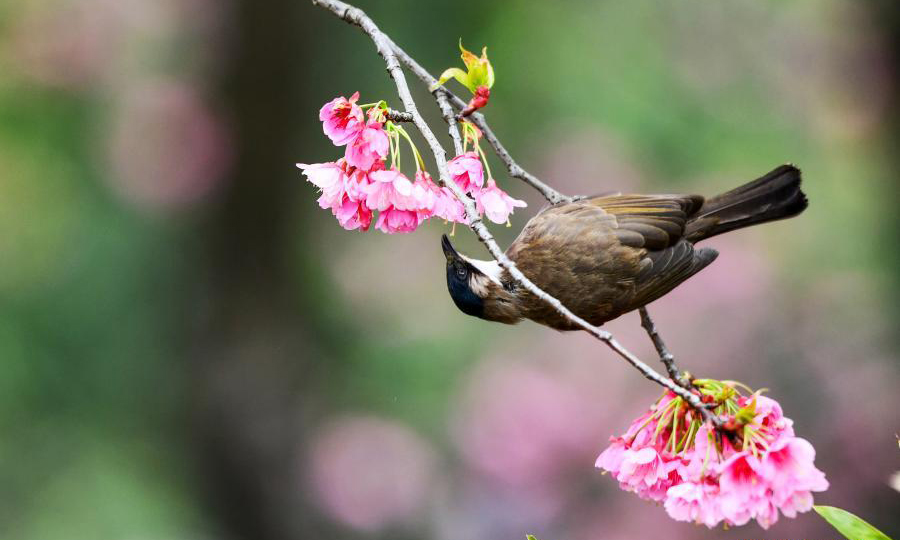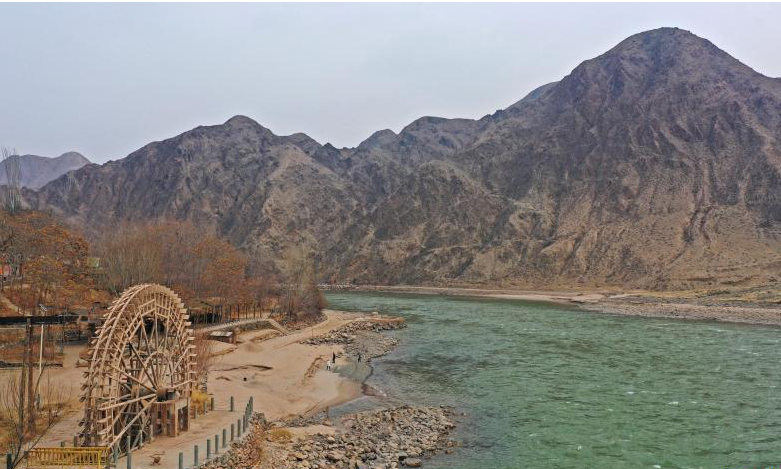Commentary: No more crocodile tears for China's Xinjiang
BEIJING/URUMQI, March 10 (Xinhua) -- Western politicians' accusations of human rights abuses against Uygurs in Xinjiang have picked up a higher pitch recently. These noises are, in fact, nothing more than hypocritical crocodile tears aimed at smearing China's image.
And more importantly, they are crying over made-up stories that contain not a single shred of truth. The claim of "forced labor" underpinning a ban on imports of Xinjiang's cotton is groundless.
In fact, workers of all ethnic groups in the region have signed labor contracts with employers based on the principles of equality and voluntariness, and received legal payments in accordance with China's labor law and regulations. There is no discrimination against workers on the basis of ethnicity, gender, or religious belief.
Besides, if these politicians really care about the well-being of people in Xinjiang, they should have never imposed a ban on cotton imports from the region. The cotton industry is an important means of living for numerous local people for generations. The ban only hurts them by robbing their rights to work and to a better life.
That is why some Xinjiang enterprises and locals are suing Adrian Zenz, a member of a far-right group established by the U.S. government who has kept fabricating fake reports about Xinjiang, for causing damage to their reputation as well as economic losses by spreading rumors of "forced labor."
Adrian Zenz has not been to Xinjiang in recent years, but ignorance has not prevented him from constantly churning out ill-grounded reports on the region, which have been readily picked up by some like-minded Western politicians as proof for their double-faced human rights concerns.
The reality in Xinjiang is that all the people including the Uygurs have been lifted out of absolute poverty with enhanced access to infrastructure, education, healthcare and jobs. The ethnic traditional cultures and religious beliefs are effectively protected in Xinjiang, where visitors can find well-furnished mosques and watch TV programs broadcasted in local ethnic languages everywhere in the region.
The voices of ethnic minority groups in Xinjiang are also heard on the national political arena like the ongoing "two sessions." Xinjiang's over 50 national lawmakers attending the annual session of the National People's Congress (NPC), China's top legislature, are from 11 ethnic groups. Among them, 22 are Uygurs. At the regional legislature, over 64 percent of local lawmakers belong to different ethnic minority groups.
Forget the dramatic but baseless accusations of liars like Adrian Zenz. There are so many sources including statistics, pictures, blogs and videos to learn about what is really happening in Xinjiang.
Uygur population in the region has doubled from 5.55 million to over 12 million in the past more than 40 years. The average life expectancy of local people has risen from 30 to 72 years in the past 60-plus years. The region's GDP has also surged over 200 times in the past over six decades.
With these plain facts, how can an accusation of "genocide" be justified? The smearing, whether targeted at the population or culture in Xinjiang, has proved to be thorough lies.
Enough of the cheap tears. The people of Xinjiang refuse to be used by Western politicians as pawns to undermine the region's stability and prosperity and interfere in China's internal affairs.
Photos
Related Stories
- Companies, individuals in Xinjiang to sue rumormongering Adrian Zenz for causing reputation damage, economic losses
- Departed hero deputy missed at NPC session, but spirit lives on
- Pic story of folk dancer in Xinjiang
- Claiming 'genocide' in Xinjiang pure political manipulation: Wang Yi
- "Xinjiang genocide" claim a thorough lie: Chinese FM
- Xinjiang girls seeking a better living and life of dignity is now BBC's 'evidence of coercion'
- Not one word of truth in Western media’s anti-China reports on Xinjiang: French journalist
- Canada is exactly trampling upon human rights by fabricating lies about Xinjiang-related issues
- Experts discuss Xinjiang employment, labor rights at seminar
- Chinese embassy sends letter to The Economist to refute untrue story about Xinjiang
Copyright © 2021 People's Daily Online All Rights Reserved










